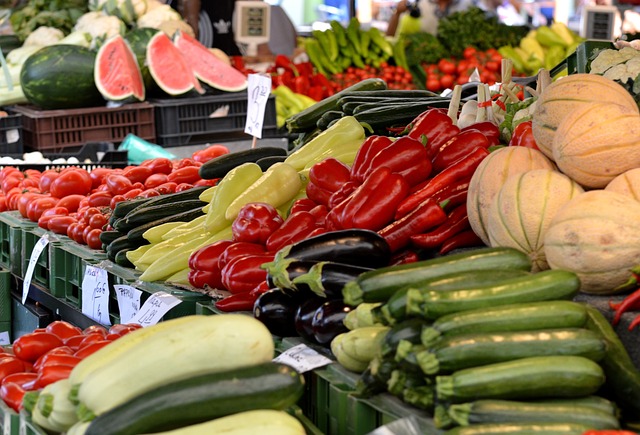Yard waste, a significant component of municipal solid waste, can harm the environment if not managed properly, overloading landfills and releasing greenhouse gases. Implementing effective Yard Waste Removal and Recycling (YWRR) practices like composting and mulching is vital for sustainability. These methods transform organic waste into valuable resources that enhance soil health, reduce synthetic fertilizer needs, and support healthier plants while alleviating landfill pressure. Home strategies include proper food waste management through composting and recycling programs. Community initiatives promote YWRR through educational campaigns and convenient collection systems, fostering a collective effort towards sustainability. Long-term benefits include environmental preservation, new business opportunities, and the development of more eco-friendly cities worldwide.
In today’s world, understanding and mitigating yard waste impact is more crucial than ever. Organic waste reduction strategies not only benefit our environment but also contribute to sustainable living. This article explores effective methods for minimizing organic waste at home, highlights community initiatives promoting responsible yard waste management, and delves into the long-term benefits and innovations in recycling and disposal. Discover practical steps towards a greener future with efficient yard waste removal and recycling practices.
- Understanding Yard Waste Impact and Importance of Reduction
- Effective Strategies for Organic Waste Minimization at Home
- Community Initiatives and Programs for Responsible Yard Waste Management
- Long-term Benefits and Innovations in Yard Waste Recycling and Disposal
Understanding Yard Waste Impact and Importance of Reduction

Yard waste, including grass clippings, leaves, and garden trimmings, often comprises a significant portion of municipal solid waste. Despite its natural appearance, this organic material can have a substantial environmental impact if not managed properly. Landfills are already overflowing with non-biodegradable items, and yard waste contributes to this issue, taking up valuable space and releasing greenhouse gases as it decomposes slowly under anaerobic conditions.
Reducing yard waste through proper management and recycling is essential for sustainable living. It not only minimizes the strain on landfills but also conserves natural resources by creating a continuous cycle of nutrient return to the soil. Efficient yard waste removal and recycling practices, such as composting and mulching, can transform these organic remnants into valuable resources that enrich garden soil, reduce the need for synthetic fertilizers, and promote healthier plants.
Effective Strategies for Organic Waste Minimization at Home

Minimizing organic waste at home is a significant step towards sustainable living, and there are several effective strategies to achieve this goal. One key approach is proper food waste management. Instead of tossing excess food, consider composting. Composting not only reduces landfill waste but also creates nutrient-rich soil for gardening. Start a small compost bin in your kitchen or backyard to recycle food scraps and yard waste like fruit peels, vegetable trimmings, and grass clippings. This practice diverts significant organic material from landfills, where it contributes to methane emissions.
Additionally, implementing a recycling program at home can further enhance organic waste reduction. Separate paper products, cardboard, glass, and plastic from your regular trash. Many municipalities offer curbside recycling services, making it easier than ever to participate. For yard waste removal, explore local recycling centers or programs that accept materials like leaves, twigs, and small branches, often referred to as Yard Waste Removal and Recycling. These strategies not only reduce the volume of waste but also contribute to a healthier environment by promoting organic matter decomposition and resource conservation.
Community Initiatives and Programs for Responsible Yard Waste Management

Community initiatives are playing a significant role in promoting responsible yard waste management, focusing on sustainable practices that reduce environmental impact. Local programs often involve educational campaigns to raise awareness about the importance of proper disposal and recycling. Through workshops and community events, residents learn effective strategies for minimizing organic waste from yards, such as composting and mulching techniques. These initiatives empower individuals to take charge of their waste, ensuring responsible yard waste removal becomes a collective effort.
Many communities have established collection systems for organic materials, including yard trimmings and food scraps. By providing convenient drop-off points or pick-up services, these programs facilitate the recycling process. The collected waste is then transformed into valuable resources like compost, which enriches local soil, reduces the need for synthetic fertilizers, and fosters a healthier ecosystem. Such practices not only contribute to sustainable yard waste management but also create a circular economy where organic materials are given new life.
Long-term Benefits and Innovations in Yard Waste Recycling and Disposal

The long-term benefits of yard waste removal and recycling are significant, both for the environment and for communities. By adopting efficient practices, we can reduce the strain on landfills, cut down on greenhouse gas emissions, and foster a circular economy where organic materials are transformed into valuable resources. Innovations in this field have led to advanced composting techniques, such as industrial-scale facilities that can process large volumes of yard waste, turning them into nutrient-rich compost or biofuel. These technologies not only promote sustainable disposal methods but also create new business opportunities and job prospects.
Moreover, the integration of yard waste recycling programs into local governance and urban planning can lead to more resilient and eco-friendly cities. As communities embrace these strategies, they contribute to a global movement towards sustainability, ensuring a healthier planet for future generations. Innovations in this domain continue to push boundaries, making it possible to harness the potential of organic waste as a valuable asset rather than a discarded burden.
Reducing organic waste from yard activities is a collective effort that yields significant environmental benefits. By implementing home-based strategies, community programs, and embracing innovative recycling methods, we can substantially decrease the impact of yard waste on our ecosystems. Through proactive measures like composting, proper disposal, and community involvement, we not only minimise landfill contributions but also foster a more sustainable future for effective yard waste management. Let’s continue to explore and adopt these practices to make a positive change in our local landscapes and beyond, ensuring efficient yard waste removal and recycling processes.



